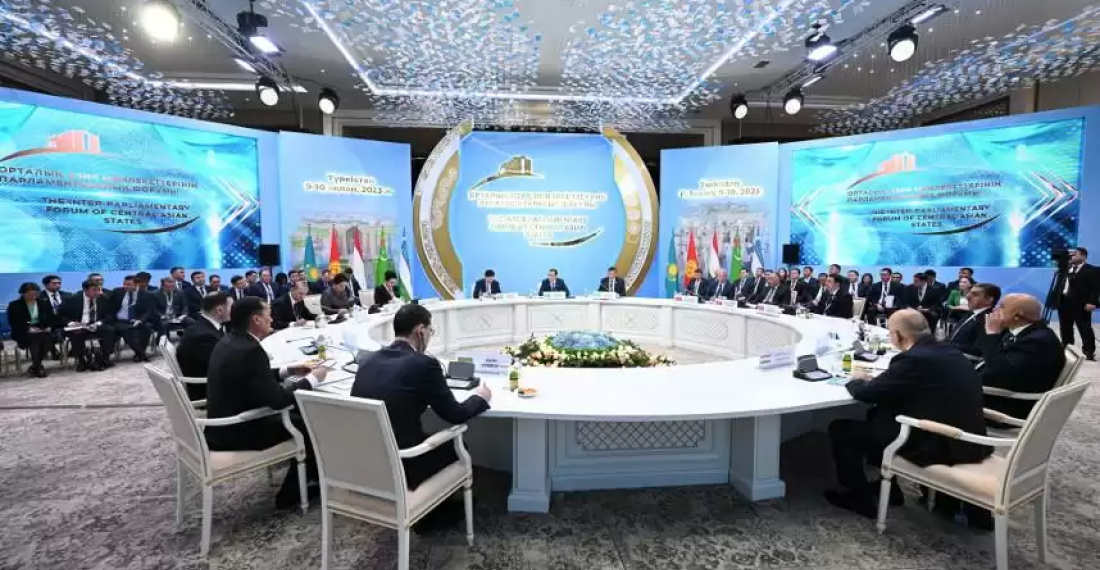The first ever meeting of the Central Asian Interparliamentary Forum is taking place in the Kazakh city of Turkistan on Friday (10 February), which has resulted in the adoption of the landmark Turkistan Declaration.
The forum, which brings together parliamentarians from Kazakhstan, Uzbekistan, Kyrgyzstan, Tajikistan and Turkmenistan, is discussing the strengthening of comprehensive strategic cooperation among Central Asian states and the role of parliaments in this process.
More specifically, the forum is discussing topics including regional security, the development of joint infrastructure and logistics projects, transit and transport potential of the region, and alternative supply routes from Central Asia. Alongside discussing strategic cooperation, parliamentarians are also discussing expanding cultural and humanitarian cooperation based on a common historical and cultural heritage.
The Central Asian Interparliamentary Forum has resulted in the participants adopting the Turkestan Declaration. This declaration "reflects prospects for further development of inter-parliamentary relations aimed at widening economic cooperation and development of the common cultural and historical space of Central Asia with its peculiar unique identity", according to Kazinform.
Central Asian countries are "united not only by the past, but also by the present"
The Kazakh delegation is headed by Chairman of the Senate of the Kazakh Parliament Maulen Ashimbayev. The delegation of Kyrgyzstan is headed by Chairman of the Jogorku Kenesh Nurlanbek Shakiev; Uzbekistan, the Chairman of the Senate of the Oliy Majlis Tanzila Narbayeva; Tajikistan, headed by Chairman of the Majlisi Namoyandagon Majlisi Oli Mahmadtoir Zokirzoda; and Turkmenistan, by Deputy Chairman of the Mejlis Gurbanmurat Ashyrov.
Opening proceedings on Friday, Maulen Ashimbayev of Kazakhstan said that global negative trends "pose a direct challenge to the Central Asian countries, to the security of the region, as well as to the economic and social development of our countries. Amid these difficult conditions, the unity of our countries, the readiness to jointly confront new challenges and problems gains importance".
He added that "[Central Asian countries] are united not only by the past, but also by the present. Central Asian countries have common interests and common tasks."
The choice of the historic city of Turkistan in the south of Kazakhstan as the host city is notable. In 2021, the city was proclaimed as the "Spiritual Capital of the Turkic World" by the Organization of Turkic States, and has an archeological record dating back to the 4th century AD.
The second forum will take place next year in Samarkand, Uzbekistan.






